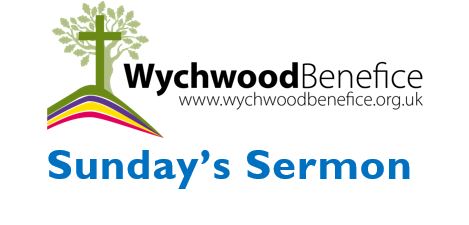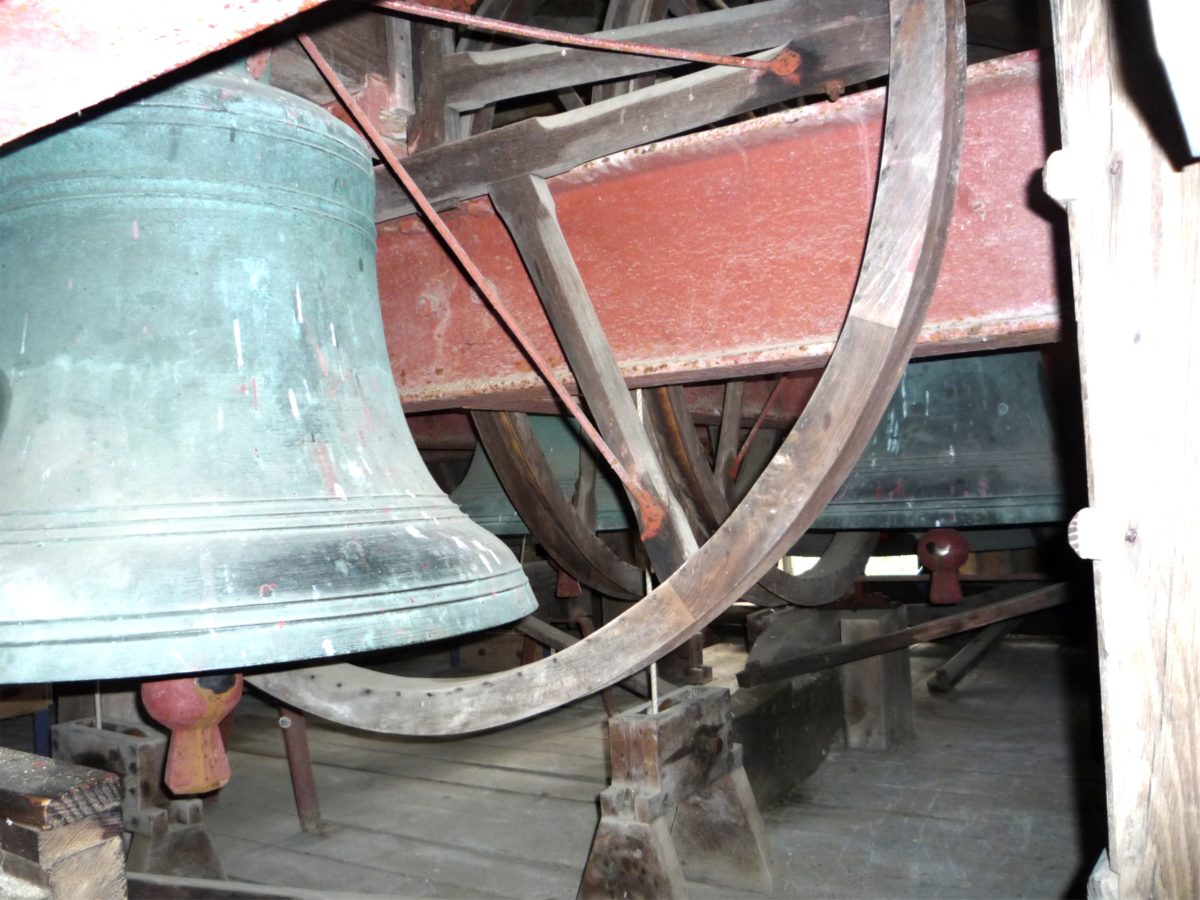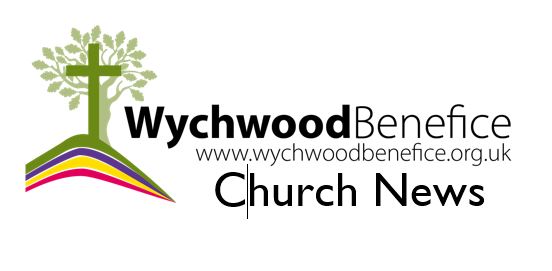
Eleventh Sunday after Trinity
1 Kg 19, 4-8 Ps.130,34,91; Eph. 4:25-5:2; John 6, 35, 41-51
This is our third ‘I am the bread of life’ reading of four from John set for what is the period of bounty in field and garden for northern hemisphere Christians. Jesus was talking of himself as the bread of life, and some of us took this morning in Communion. Today’s reading from 1 Kings also see bread as stuff to eat: if you shop this week, help feed kids and their families in West Oxfordshire during the holidays by putting UHT milk, sauces for pasta, tinned meat, vegetables and fruit into the food bank box: they don’t need more sweet corn or soup! Not helping to feed people who for whatever reason- lousy wages, missing benefits, illness or helplessness- are hungry, should be unacceptable in this so-called Christian country.
Off my soap-box now, I’ll be looking at a verse of the Ephesians passage, but before that, let’s pick out some lines from todays’ trio of psalms, which all speak of trust and hope: ‘I wait for the Lord, my soul waits for him; in his word is my hope,’ and ‘O taste and see that the Lord is good, happy are those who take refuge in him.’ This evening we shall read: ‘Under God’s wing you will find refuge…fearing neither the terror of the night nor the arrow that flies by day’.
The earlier chapters of Ephesians made one thing clear. We shall live in tranquillity, at peace with God now and for ever if we trust in God, accept Christ as our guide, embrace the Holy Spirit, and pledge to respect and honour all as we leave church after taking Christ’s bread or singing his praise. The last few chapters of Ephesians, from four onwards, fill in some crucial details for life, not, let me hasten to say, life without trouble, sickness, or tragedy: but with the sure means to get through, held up by God.
Today’s Ephesians verse is: ‘Let no evil talk come out of your mouths, but only what is useful for building up as there is need, so that your words may give grace to those who fear’. The phrase ‘as there is need’ is tricky, and much affected by context. Here’s an example. Aibeh was a very slow learner struggling in an English-medium school in Borneo in the 1960s. She really couldn’t write a clear sentence, so I decided to ignore the wrong words and just tick any which were reasonably correct. Susie, on the other hand, came from the US to do a doctorate with me in Edinburgh. Politely but efficiently I took her first essay to pieces: she wept, saying, ‘No one has ever said my work isn’t good enough’. Applauding Aibeh’s meagre offering was useful for building her up, just as was shredding Susie’s work, though not Susie herself.
So this verse is saying, ‘don’t say unpleasant things unless strictly necessary, and then never for pleasure, or to hurt’. Kids, and adult cowards, often do that. My oldest grandchild, Conrad, gleefully reported that his younger brother Bastian ‘shook your Japanese toy and threw it on the ground and it’s broken’. Actually, the toy had yet again fallen apart- I’ve fixed it now- but Conrad (aged 4) wanted to get his brother in trouble.
Kids do that, but they will learn not to tell tales or score points, but what of adults? The comments made by bystanders when Jesus said he’d come from heaven were scathing: ‘who does he think he is? he’s just so and so’s kid’. Yet Paul isn’t just giving negative orders- don’t this or that. Lists of don’ts are easy to tick off: easy to say ‘I didn’t get drunk, commit adultery, cheat on my taxes this week’ and feel complacent. But a command about being – kind and fair and loving – is much more demanding. ‘Build people up to give grace to them who fear’. Patronisingly building people up falsely by saying ‘wonderful work’ when it is below what they can do, as teachers had done to Susie, brings neither benefit nor grace. But what about compliments for kindness, for a task well done? That doesn’t take much effort, does it, nor diminish the speaker, does it?
Well, quite a few people reckon there’s only so much good, so much beauty, so much adequacy, available, so if I compliment you, I’ll diminish myself. Yet God has said in the Psalms and all the readings: ‘I am there, trust in me, I will enfold you’, Christ gave himself for us that we could live in grace, the Spirit is sent to fill us with stalwart peace. How then can ‘good’ be limited, if God’s goodness and loving kindness is unendingly there for us?
But even devout Christians may feel it is, especially if they do not feel forgiven. Years ago, I mentioned to a woman in Australia that local people rarely complimented each other. She thought a moment, and said ‘Yes, you’re right. If I make a cake, my husband never compliments me for it, so I just have to know that it’s good in Jesus sight…But that’s rather cold’. Her husband had had little love as a child, and felt so weighed down with sinfulness and inadequacy he didn’t feel sufficiently filled with God’s bounty to give a little affirmation to the wife he loved.
‘Say what is useful for building people up, as there is need, so your words may give grace to those who hear’. We are sheltered under the wing of God, fed by the body of Christ, filled by the Spirit. As God’s gift of love fills us, pass it to others in words of affirmation, and acts of practical support, that our words and our deeds indeed give grace to others.
Revd Dr Elizabeth Koepping



